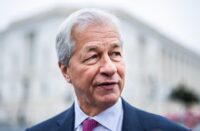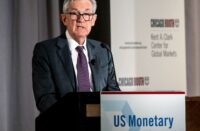Frank McCourt, a renowned American entrepreneur, has shown interest in partnering with potential buyers to acquire the US operations of TikTok, the popular Chinese-owned short-video app. Speaking at the Davos event, McCourt emphasized his desire to maintain ownership control of the asset.
Although he remained tight-lipped about his funding sources, McCourt revealed that private equity firms and family offices have offered various financial options. He stressed that capital isn’t the issue, but rather waiting for a decision from TikTok’s parent company, ByteDance, or the Chinese government about the app’s US future.
This revelation comes in the wake of the US President’s recent executive order, which postponed a ban on TikTok by 75 days. The President also expressed his preference for the US to have a 50% stake in a joint venture in TikTok, naming billionaires Elon Musk and Larry Page as potential buyers.
In January, McCourt’s advocacy group, Project Liberty, submitted a bid to acquire TikTok’s US assets. Their plan is to operate the app using their technology, which allows users to control the use and sharing of their data. Despite a lawsuit from TikTok, the US Supreme Court upheld the ban.
McCourt, who has never personally used TikTok, is primarily interested in the app’s users, data, and brand. He does not plan to purchase TikTok’s recommendation algorithm, which is key to the app’s success. Instead, he aims to transition TikTok’s 170 million US users to the Project Liberty platform, which operates on US digital infrastructure.
During a meeting with the US House of Representatives’ select committee on China, McCourt and fellow bidder Kevin O’Leary received bipartisan assurances of commitment to a qualified divestiture. McCourt left the meeting with a strong impression that the US Congress is unified on enforcing the legislation and causing either a ban or sale of US TikTok.
While open to various financial arrangements, McCourt insists on maintaining control and transitioning TikTok users to Project Liberty’s digital infrastructure. He also emphasized that the focus of the acquisition isn’t just about the highest bidder, but who can meet the strict criteria outlined in the legislation and reaffirmed by the Supreme Court.




